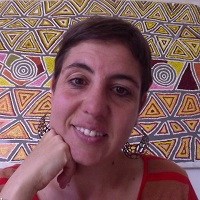Anthropology seminar series: Masters of modernity: property, landownership and masculine desire

Masters of Modernity: Property, Landownership and Masculine Desire
In the last two decades, a large-scale land rush has taken place in Vanuatu with over ten percent of the customary estate now leased. On Efate Island, which hosts the capital city of Port Vila and which provides the major site for the ethnographic research outlined in this seminar, 43.6 percent of land previously held under customary tenure is now leased. Many of these leases hug the coastline—56.5 percent of the coastline of Efate Island is now leased—limiting Indigenous access to the most arable land and much of the coastal estate.
In Melanesia, concepts of land as foundational to identity exist alongside–often in tension with–the formal market for land which is regulated by the state. What then are the implications for emplaced identity that flow from the leasing of customary land? This seminar draws on concepts of personhood and property to discuss both the instrumentality of legal processes in the exclusion of Indigenous people from landscapes in Vanuatu, and the central role that local Indigenous actors play in these processes of land transformation.
Concepts of personhood in Melanesia have long discussed the tension between relationally constituted persons, and Western, Enlightenment constructs of the individual. Contrary to these theories which posit binary models, aspects of agency are best located along a continuum of personhood. Legal identities actively structure personhood by defining social relationships to property. The idea of a possessive individual is foundational to claims of ‘custom ownership’. In this paper, I explore personhood by considering the agency of powerful men engaged in leasing customary land. I wish to consider how ‘masters of modernity’ manipulate various spheres of power and authority, including the introduced (modern) and kastom sphere. The agency of masters of modernity is actively contoured by: the specific legal identity of ‘custom owner’; increased opportunities to access cash and status available through leasing land; rival claims to chieftainship; and the desire to assert personal authority over landscapes and people. This agency is expressed in the context of social transformations in relationships to customary land as an expression of individual, masculine desire.






